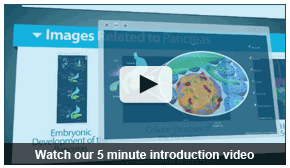-
Embryonic Development
-
Stem Cell Differentiation
-
Regenerative Medicine
Dilated Cardiomyopathy
- Cell Therapy Approaches
Dilated cardiomyopathy (DCM) is a heart disease caused by pathogenic mechanisms including genetic factors, mechanical stress, intoxication or infection-induced autoimmune response, in contrast to ischemic heart disease (IHD), where cardiac tissue damage is caused by insufficient blood supply. Accumulating evidence indicates that inflammation is the most common cause of DCM development. Inflammation can lead to direct damage to the myocardial tissue or provoke an autoimmune response causing damage to ventricular myocytes or extracellular matrix. Structural alterations of myocardium are largely similar between DCM and IHD patients, but in case of dilated cardiomyopathy patients also suffer from impaired heart vascularization, vasculogenesis and angiogenesis, apparently as the consequence of reduced endothelial cell survival. Currently, the main therapeutic choices for DCM patients include medicinal management of heart failure and reperfusion strategies.
Cell Therapy Approaches
Based on the results of preclinical studies, it seems that patients with non-ischemic heart failure may highly benefit from stem cell therapy. In these patients, bone-marrow stem cells demonstrate significantly higher regenerative potential compared to patients with ischemic heart failure. Moreover, DCM patients may represent a better target population for stem cell therapy due to a higher number of circulating progenitor cells compared to patients with ischemic heart disease.
Studies in animal models suggest that implantation of stem cells improves angiogenesis, arteriogenesis, tissue perfusion and left ventricular function in damaged hearts. Stem cell transplantation in patients with DCM can improve cardiac function by modulating the production of factors responsible for apoptosis of cardiomyocytes and endothelial cells, as well as by promotion of angiogenesis, activation of resident cardiac stem cells or by supplying anti-inflammatory factors. In cases of autoimmune DCM, stem cell transplantation may neutralize circulating autoantibodies by tolerization of autoreactive T and B cells and therefore limiting the over-activated immune response.
To date, a number of clinical trials have investigated the effects of stem cell therapy on dilated cardiomyopathy. Similarly to the treatment of ischemic heart disease, intracoronary, intra-myocardial and endocardial injections are used for cells delivery to the heart. At least two types of stem cells have been tested for their ability to improve cardiac function in DCM patients: bone marrow-derived stem cells (BMSCs) and mesenchymal stem cells (MSCs).
BMSCs are the most well characterized and potentially clinically accepted, as their isolation procedures, delivery to the patient methods, safety and therapeutic efficacy have been evaluated and established in the treatment of hematologic diseases. Accumulated preclinical and clinical data indicate that intra-coronary injection of BMSCs to DCM patients yields the best results when compared to other delivery methods. In addition to the total BMSCs, several fractions of bone marrow-derived stem cells have been clinically tested in relation to cardiac disease therapies, including bone marrow-derived mononuclear cells (BM-MNCs) used mostly for autologous transplantation, CD133+ stem cells and CD34+ hematopoietic progenitor cells. These types of BMSCs proved their safety and feasibility.
Improved cardiac function was obtained in the First-in-Man-ABCD (Autologous Bone Marrow Cells in Dilated Cardiomyopathy) reported in 2006. Additional study aimed to define safety and feasibility of autologous CD34+ hematopoietic progenitor transplantation in pediatric DCM patients. Significant improvement in left ventricular function was achieved in the TOPCARE-DCM trial, where intracoronary infusion of BMSCs was performed for patients with DCM. An extensive clinical trial was carried out with at least 2 year follow up to investigate whether infused autologous BMSCs can improve damaged heart function. These cells were used for treating several heart diseases, such as acute myocardial infarction, ischemic heart disease and DCM. Cell treatment was found to be safe and had beneficial effects on cardiovascular outcomes, including recovery of left ventricular function, and a positive effect on maladaptive hypertrophy of viable myocardium.
MSCs from various sources (bone marrow-derived, umbilical cord-derived, etc.) are also being evaluated for their efficiency in treating DCM. Safety and efficacy of allogeneic versus autologous bone marrow-derived MSCs transplantation have been compared and proved that autologous MSCs do not stimulate immunologic reactions, moreover, favorably affect ventricular remodeling and quality of life. Ixmyelocel-T, a mixture of CD90+ MSCs and monocytes derived from autologous BMSCs, is currently being evaluated in a Phase 2 clinical trial. Treated DCM patients benefit from increased septal thickening resulting in improved clinical outcomes. Another study is currently investigating the safety and efficacy of umbilical cord-derived MSCs in treatment of idiopathic dilated cardiomyopathy in children.
In summary, intracoronary stem cells transplantation in patients with DCM leads to improved ventricular remodeling, improved long-term survival and quality of life.



